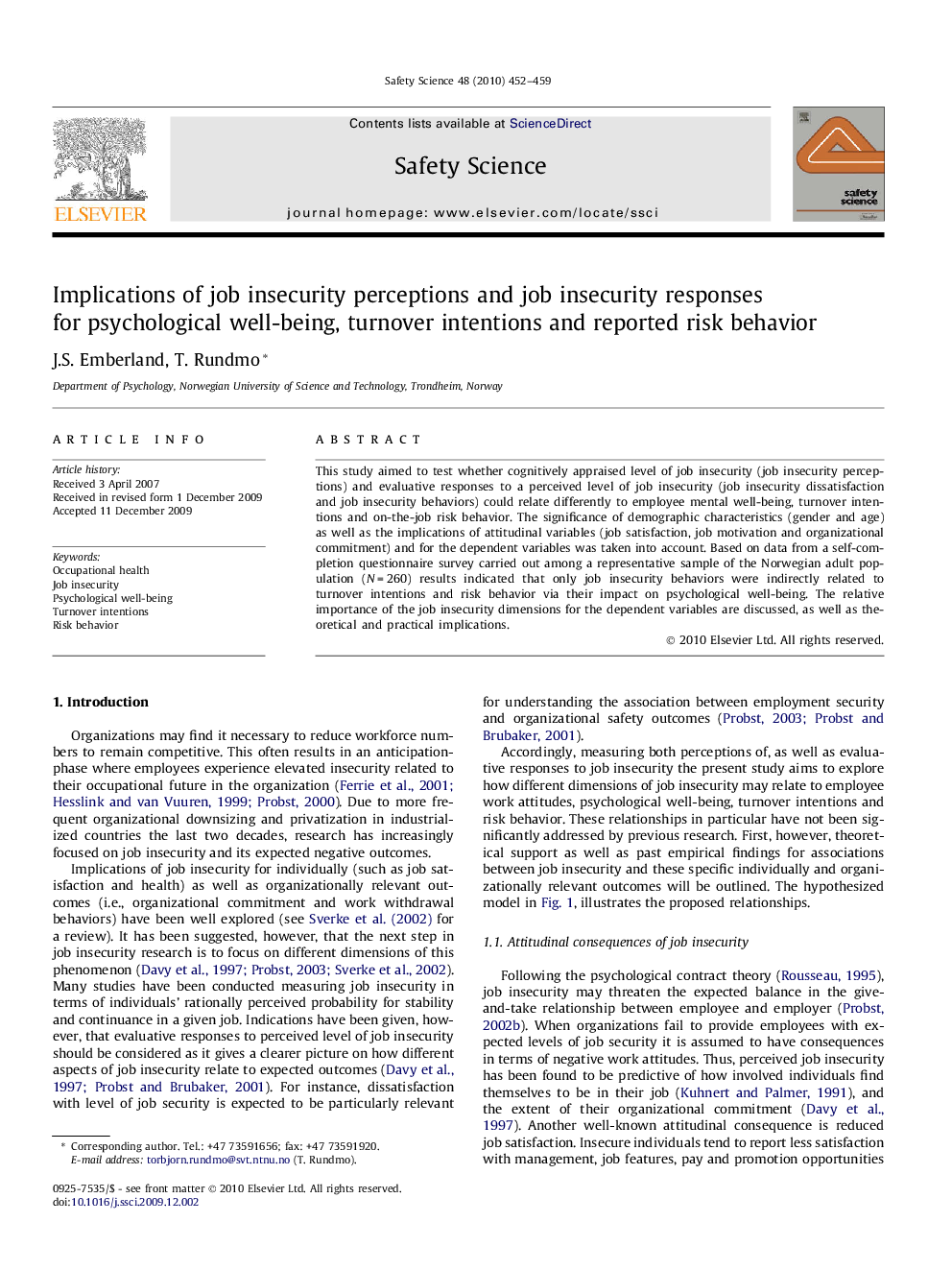| Article ID | Journal | Published Year | Pages | File Type |
|---|---|---|---|---|
| 589711 | Safety Science | 2010 | 8 Pages |
This study aimed to test whether cognitively appraised level of job insecurity (job insecurity perceptions) and evaluative responses to a perceived level of job insecurity (job insecurity dissatisfaction and job insecurity behaviors) could relate differently to employee mental well-being, turnover intentions and on-the-job risk behavior. The significance of demographic characteristics (gender and age) as well as the implications of attitudinal variables (job satisfaction, job motivation and organizational commitment) and for the dependent variables was taken into account. Based on data from a self-completion questionnaire survey carried out among a representative sample of the Norwegian adult population (N = 260) results indicated that only job insecurity behaviors were indirectly related to turnover intentions and risk behavior via their impact on psychological well-being. The relative importance of the job insecurity dimensions for the dependent variables are discussed, as well as theoretical and practical implications.
